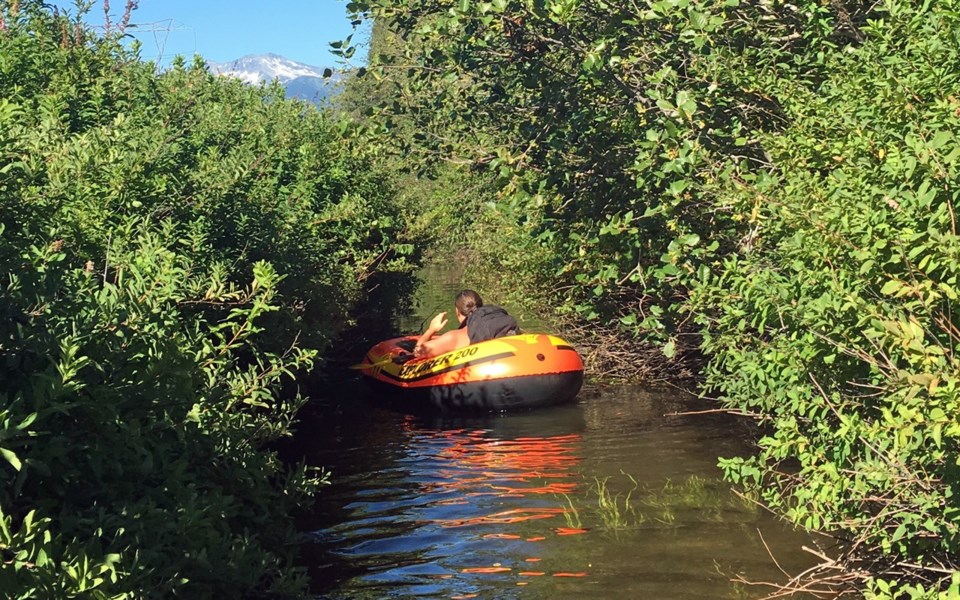river revellers beware: operating that inflatable dinghy under the influence could cost you your driver's licence (really).
After an Ontario man was convicted last month of impaired operation of a canoe (in a case that involved the death of an eight-year-old when the canoe tipped), some interesting questions are being raised about how Canada's impaired driving laws apply to watercraft.
The judge in that case, Justice Peter West, concluded that anything capable of navigating a waterway is a vessel (which are included, though not properly defined, under impaired driving legislation passed in 1961).
On the topic of inflatable dinghies—which are a common sight on Whistler's River of Golden Dreams—West concluded they count as a vessel.
"Where the inflatable dinghy was being used as a 'vessel' to navigate down the lake or river or on a territorial waterway and the operator was impaired ... a police officer would have to determine whether it was appropriate to charge that person considering the totality of the circumstances," he wrote.
The Whistler RCMP does patrol the River of Golden Dreams, and could, under the Criminal Code, charge someone while operating a dinghy impaired, said Staff Sgt. Paul Hayes.
But would they?
"It comes down to the officer, the circumstances of the event, and what all of it, when put together, means," Hayes said.
"We as police officers have discretion in many situations to take various types of enforcement action, up to and including impaired driving or impaired operation of a vessel.
"So yeah, technically, we could go down that road if for some reason the circumstances played out where that was the best option."
Recreation on the River of Golden Dreams and Whistler's lakes has been on the rise in recent years, and hasn't gone unnoticed by longtime locals.
Jan Tindle has lived on Alta Lake since the '70s, and recently wrote to council to suggest an "electric-motor-only bylaw" to help stem the environmental impact of what she sees as a "huge proliferation" of watercraft—mainly party barges—on the lake.
"There's just too many of them. I don't understand why nobody's died yet," Tindle said.
"You watch people load on, 10 or 15 people that are drinking lots, and probably there's no life-jackets on there—it's just kind of an accident waiting to happen."
An electric motor bylaw, she reasoned, might cut down on the use of party barges on the lake.
Council received Tindle's letter, and, in a follow-up email, an RMOW spokesperson said staff is looking into the matter and will bring a review to council in the near future.
The Whistler RCMP has not been receiving an influx of complaints about party barges, and are not proactive in enforcing the rules around them, "but that's not to say that we can't," Hayes said.
"We do have a boat at our disposal, and if we became aware of issues we could in fact launch a vessel and go and check them out."
The message for anyone on the water is to account for their own safety and the safety of any passengers, Hayes added.
"If they're in those little boats or whatever, [the message is] that they have to abide by the rules, and that they can be exposed to criminal charges should they choose to drink and then operate those vessels," he said.
"That's something to definitely consider."




